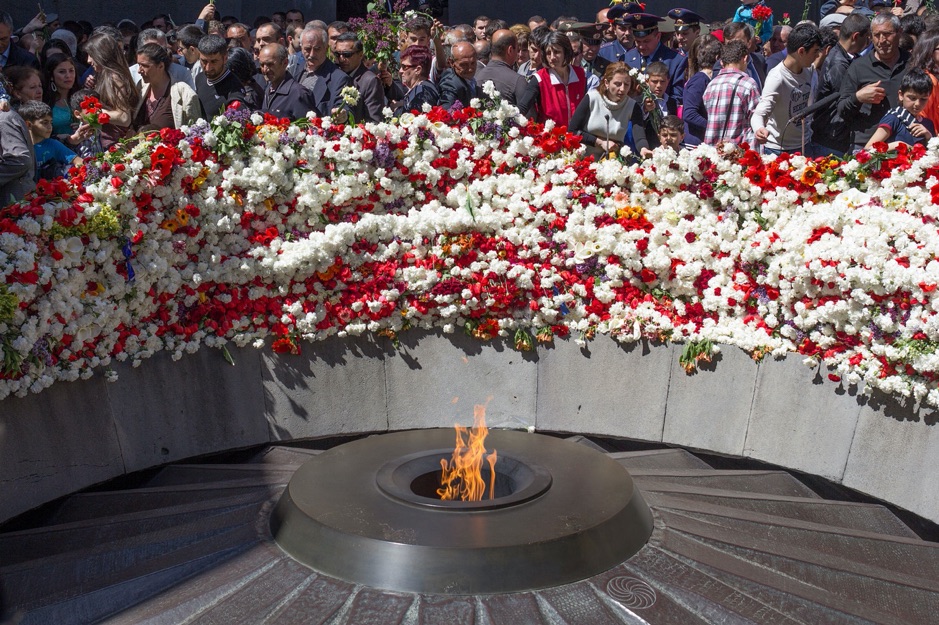By John Voutos
The Armenian Genocide remains at the forefront of Turkish-Armenian relations today. Here’s a quick guide to the Armenian Genocide:
- What was the Armenian Genocide? The Armenian genocide was the mass deportation and murder of Armenians by the Ottoman Empire during World War One.
- Ethnic cleansing: The Armenian Genocide was rooted in religious conflict and was succeeded by a long timeline of Christian-Islamic tension in the Middle East. The Ottoman Empire regarded Armenians as ’second-class citizens’ in Ottoman society.
- The toll: The genocide claimed “more than a million” lives, according to the International Association of Genocide Scholars (IAGS). Turkey disputes this figure, estimating a total of 300,000 deaths.
- The fifth-biggest genocide in modern history: The Armenian Genocide is ranked fifth by death toll, after the Holocaust (1941-1945), the Nazi genocide of ethnic Poles (1939-1945), the Cambodian genocide (1975-1979), and the Circassian genocide (1864-1867).

- Classification as ‘genocide’: The Raphael Lemkin coined the term ‘genocide’ in 1944. The UN adopted the Convention on the Prevention and Punishment of the Crime of Genocide four years later in 1948 and has since recognised the event as a genocide.
- Impact on diasporas: Armenians are one of the world’s most dispersed peoples, largely in part due to the Armenian Genocide. Historians estimate that 800,000 – 1.2 million Armenians were deported during the period.
- Parallels to the Holocaust: It was widely considered the greatest atrocity in history prior to the Holocaust. Austrian-Jewish writer Franz Werfel used the plight of Armenians in Musa Dagh, Turkey, in The Forty Days of Musa Dagh (1933) to warn of the dangers of Nazism. The Armenian Genocide is also the second-most studied genocide in history after the Holocaust.

- National recognition and denial: 30 countries today recognise the events as genocide, including the US, Germany, France, Italy, Canada, and Russia. Turkey has condemned these countries for their recognition and continues to reject calls to follow suit.
- The Ottoman Empire also led pogroms against Greek Christians: The Ottoman Empire also led genocides against Syriac and Greek Orthodox Christians of Asia Minor, known today as the Greek and Pontic Genocides. The Ottoman Empire is responsible for the deaths of 300,000-900,000 Christian Ottoman Greeks during 1913-1922.
- Armenia-Turkey relations have made little progress: Turkey and Armenia signed a deal in late-2009, yet to be ratified, to establish diplomatic relations and open their borders. Nonetheless, tensions remain.


